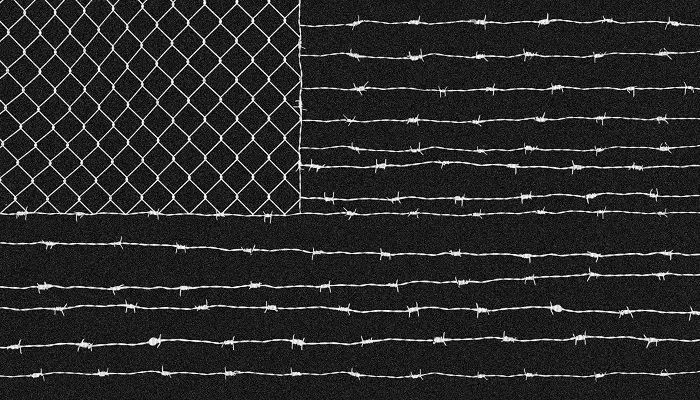The Trump administration is signaling an expansion of its immigration enforcement measures—potentially targeting U.S. citizens convicted of crimes and even those who criticize federal policies, according to recent statements from officials.
Legal experts warn these proposals could spark constitutional challenges, testing the limits of presidential authority while raising concerns about due process and free speech.
Here are three key tactics under consideration that could directly impact American citizens:
Deporting U.S. Citizens to Foreign Prisons
President Trump has floated the idea of sending convicted American criminals to serve sentences overseas—a potential extension of his agreement with El Salvador, where hundreds of U.S. immigration detainees are already held in a high-security prison.
During a meeting with Salvadoran President Nayib Bukele last week, Trump suggested expanding the policy to include “homegrown” criminals, citing violent offenders who “push people into subways” or assault the elderly.
Legal advocates swiftly condemned the idea as unconstitutional, arguing it would violate citizens’ rights to due process.
Criminalizing Criticism of Immigration Policies
Some administration officials have suggested that U.S. citizens who oppose Trump’s immigration policies could face legal consequences, accusing them of “aiding and abetting” criminals or terrorists.
White House counterterrorism official Seb Gorka, in a Newsmax interview, questioned whether critics could be charged under such reasoning. Meanwhile, border officials have scrutinized immigrant advocacy groups for providing “know your rights” trainings, framing them as efforts to help people evade law enforcement.
“This is an authoritarian attempt to silence dissent,” said Kerri Talbot of the Immigration Hub, a policy advocacy group.
Defying Court Orders on Deportations
The administration’s handling of Kilmar Abrego Garcia—a man deported to El Salvador’s prison despite a court order blocking his removal—has raised alarms about whether Trump’s team could similarly disregard legal protections for U.S. citizens.
Federal Judge Harvie Wilkinson III warned that such actions set a dangerous precedent, writing, “If today the Executive can deport noncitizens without due process, what stops it from deporting citizens tomorrow?”
Public and Legal Backlash
While Trump’s immigration policies poll well among his base, proposals like foreign prison transfers face broad opposition. A recent YouGov survey found 60% of Americans against deporting detainees without due process.
Advocates stress that mistaken ICE detentions of U.S. citizens—including recent cases in Arizona and Florida—show the risks of expanding enforcement powers.
“If one citizen can be detained or labeled a terrorist,” Talbot said, “then any of us could be next.”
The White House did not respond to requests for comment but has repeatedly defended its policies as fulfilling a voter mandate for stricter border security.
Final Word: As the administration pushes aggressive immigration measures, legal battles loom over how far the government can go—and whether American citizens could become unintended targets.
Related topics:
- Horse Racing Industry Faces Uncertainty Over Workforce Visas
- AI Tools Drive Trump-Era Immigration Crackdown, Raising Alarms Over Accuracy and Civil Liberties
- Quebec Calls for Federal Immigration Cuts, Sparking Concern Among Businesses


